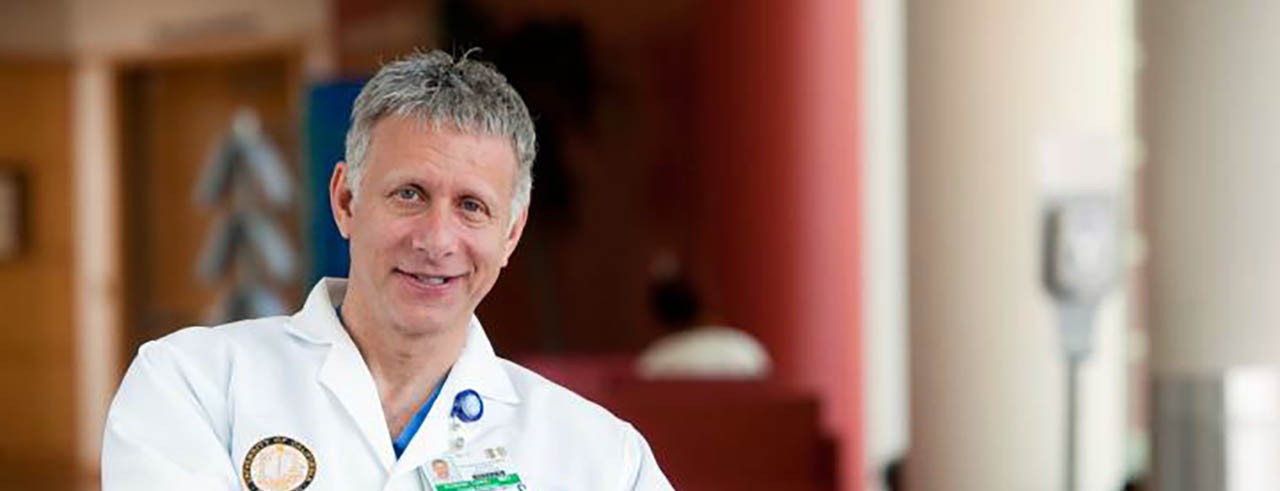
UC-developed pancreatic cancer model yields significant discoveries
Technology licensed 15 times over 20 years
When the University of Cincinnati launched its Millennium Research Plan with the goal to double funded research, cancer research was high on the list. And Andrew Lowy, MD, was on the faculty studying pancreatic cancer, looking for the best treatment for tumors.
The plan’s emphasis, said John Hutton, dean of the UC College of Medicine, was on “translational research, taking the basic science and translating it into direct patient care delivery.” Lowy, now chief of surgical oncology at Moore’s Cancer Center, University of California-San Diego, translated that edict into results.
Lowy’s laboratory developed a mouse strain called Pdx-cre that leads to excision of DNA specifically in pancreatic tissue, allowing for the turning on and off of genes that drive the development and progression of pancreatic cancer. With colleagues at the University of Pennsylvania, they developed the very first mouse models of human pancreatic cancer (called KC and KPC), which are now used to study ways to both diagnose and treat pancreatic cancer.
“They have become the most widely used models in the field worldwide,” Lowy said recently.
Making the impossible possible
Lowy’s model has proved invaluable because pancreatic cancer has long had one of the highest mortality rates of all cancers. This is largely due to its being extremely hard to diagnose in early stages, before it spreads to other organs and becomes irreversibly terminal.
Pancreatic cancer is also difficult to treat with surgery in most cases, and it tends to be resistant to chemotherapy and radiation. So early detection is even more crucial than usual.
The Pdx-Cre strain has led to numerous significant discoveries over the last 20 years and has supported the development of new treatments for pancreatic cancer patients. UC has licensed it to more than 15 companies seeking a cure.
The technology transfer team, housed in the 1819 Innovation Hub, offers researchers like Lowy the resources and expertise needed to develop their ideas, attract outside sponsors and secure patents and rights. Tech Transfer proudly helps inventors and innovators advance their knowledge to make a positive impact on society.
Featured image at top: While on the UC faculty, Andrew Lowy created a mouse model for pancreatic cancer. Photo courtesy of UC San Diego.
Learn more about UC's Tech Transfer
The 1819 Innovation Hub’s technology transfer team facilitates the transfer of inventions from academic research labs to market. Find out more at Inventor's Guide to Technology Transfer at the University of Cincinnati and Take your NEXT step.
Related Stories
Why do female caribou have antlers?
February 24, 2026
Researchers at the University of Cincinnati discovered that female caribou feed extensively on shed antlers they find while grazing to supplement their diet with important minerals they need to raise calves. This could explain why female caribou, unique among deer, have antlers.
Discovery Amplified expands research, teaching support across A&S
February 19, 2026
The College of Arts & Sciences is investing in a bold new vision for research, teaching and creative activity through Discovery Amplified. This initiative was launched through the Dean’s Office in August 2024, and is expanding its role as a central hub for scholarly activity and research support within the Arts & Sciences (A&S) community. Designed to serve faculty, students, and staff, the initiative aims to strengthen research productivity, foster collaboration, and enhance teaching innovation. Discovery Amplified was created to help scholars define and pursue academic goals while increasing the reach and impact of A&S research and training programs locally and globally. The unit provides tailored guidance, connects collaborators, and supports strategic partnerships that promote innovation across disciplines.
Blood Cancer Healing Center realizes vision of comprehensive care
February 19, 2026
With the opening of research laboratories and the UC Osher Wellness Suite and Learning Kitchen, the University of Cincinnati Cancer Center’s Blood Cancer Healing Center has brought its full mission to life as a comprehensive blood cancer hub.
